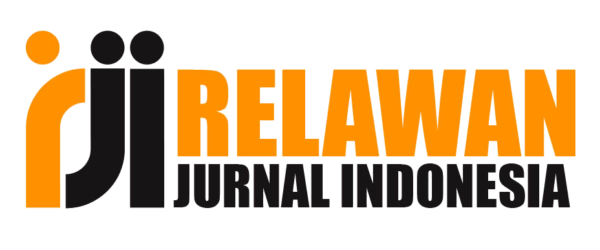PROFIL PERKEMBANGAN KEMAMPUAN BEREKSPERIMEN SISWA SMP PADA PEMBELAJARAN LEVELS OF INQUIRY (LoI) MATERI ENERGI
Abstract
ABSTRAK
Sejak tahun 1960, orang sudah berpikir bahwa dalam pengajaran sains tidak hanya memfokuskan pada hal-hal yang perlu siswa ketahui tetapi penting juga untuk membangun cara bagaimana siswa memperoleh apa yang diketahui. Kemampuan bereksperimen merupakan gabungan antara pengetahuan dan ketrampilan untuk merencanakan, melaksanakan dan melaporkan hasil eksperimen. Penelitian eksperimen dengan desain one group pretest-posttest design ini menggunakan populasi 6 kelas VII di salah satu SMPN di Kota Bandung dengan sampel 1 kelas yang diambil secara random cluster. LoI dipilih sebagai cara untuk melatihkan kemampuan bereksperimen mengingat LoI memiliki tahapan yang dipandang cocok serta memiliki keleluasaan untuk menentukan dominasi peran guru dan siswa berdasarkan kondisi siswa. Kemampuan bereksperimen yang diamati meliputi menggunakan hubungan matematik untuk meramalkan gambaran hasil observasi dan eksperimen, hipotesis dan situasi eksperimen yang dibayangkan, mendesain eksperimen serta menyimpulkan hasil eksperimen. Untuk melihat perkembangan kemampuan ini dianalisis berdasarkan jawaban LKS dengan kategori perkembangan merujuk rubrik yang di kembangkan oleh Lati. Hasil penelitian menunjukkan profil perkembangan kemampuan bereksperimen pada aspek mendesain eksperimen memiliki perkembangan yang paling rendah, meskipun dalam implementasi ini guru memiliki dominasi yang lebih besar. Oleh karenanya perlu dikembangkan cara-cara yang lebih fokus terhadap melatihkan kemampuan mendesain eksperimen terutama pada tahapan interactive demonstration dan inquiry lesson dengan lebih menekankan dominasi peran siswa di dalam pembelajaran.
Kata kunci: Profil perkembangan kemampuan bereksperimen; LoI
ABSTRACT
Since 1960, people have thought that in science teaching is not only focus on things that students need to know but it is also important to build the way students get to know. The ability to experiment is a combination of knowledge and skills to plan, execute and report on experimental results. The experimental research with the design of one group pretest-posttest design uses 6 class VII in one of SMP N in Bandung with 1 class sample taken by random cluster. The LoI was chosen as a way to experiment with the ability to experiment in considering that the LoI has the appropriate stages and has the flexibility to determine the dominant role of teachers and students based on the condition of the students. The experimental abilities observed include using mathematical relationships to forecast images of observations and experiments, hypotheses and experimental situations imagined, designing experiments and summarizing experimental results. To see the development of this capability in the analysis based on the answer of LKS with development category refer to the rubric developed by Lati. The results showed that the development profile of experimental ability in the experimental design aspect has the lowest development, although in this implementation the teacher has greater dominance. Therefore, it is necessary to develop more focused ways to practice experimental design skills, especially in the interactive demonstration and inquiry lesson stages by emphasizing the dominance of student roles in learning.
Keyword: experimental ability, LoI
Full Text:
PDF (Bahasa Indonesia)References
Klahr, D & Li, J. (2005). “Cognitive Research And Elementary Sciences Instruction: From The Laboratory, To The Classroom, And Back”, Journal Of Sciences Education And Technology, 14(2), 217-238.
Utari, Setiya. (2010). Pengembangan Program Perkuliahan Untuk Membekali Calon Guru Dalam Merencanakan Kegiatan Eksperimen Fisika di Sekolah Menengah. Disertasi pada PPS UPI Bandung: tidak diterbitkan.
Imansyah, Harun dkk. (2013). Analisis Kebutuhan Model Ujian Praktikum Mata Pelajaran Fisika SMP. [online]. Tersedia: http://penelitian.lppm.upi.edu/detil/1618/analisis-kebutuhan-model-ujian-praktikummata-pelajaran-fisika-smp. [Diakses pada Selasa, 12 September 2017]
Wenning, Carl J. (2005). Levels of inquiry: hierarchies of pedagogical practices and inquiry processes. 2 (3), 3-11.
Wenning, C. J., (2010), “Levels of Inquiry: Using Inquiry Spectrum Learning Sequences to Teach Science”, Journal of Physics Teacher Education Online, 5(4), 11-20.
Fraenkel, J.R., Wallen, N.E., & Hyun, H.H. (2012). How to design and evaluate research in education (Eight Edition). New York: Mc. Graw-Hill.
Lati, W., dkk. (2012). Enhancement of Learning Achievement and Integrated Science Process Skills Using Science Inquiry Learning Activities of Chemical Reaction Rate. Procedia-Social and Behavioral Science, hlm. 4471-4475.
Wang, Z & Fei, Y. (2010). “Improving Middle School Students’ Sciences Literacy Through Reading Infusion”, The Journal of Educational Research, 103, 262-273.
Hariningsih, Y dkk. (2016). “Hasil belajar aspek keterampilan IPA Pada Pembelajaran Level Of Inquiry Tingkat Inquiry Lesson Di SMP”, Jurnal Pendidikan, 1(8), 1561-1566.
Wenning, C. J., 2011, “Experimental Inquiry in Introductory Physics Courses”, Journal of Physics Teacher Education Online, 6(2), 2-8.
Wenning, C. J dan Khan, M.A., 2011, “Sample Learning Sequences Based on The Levels of Inquiry Model of Science Teaching”, Journal of Physics Teacher Education Online, 6(2), 17-20.
Wenning, C.J., 2005, “Implementing Inquiry-Based Instruction in the Science Classroom: A New Model For Solving the Improvement-Of-Practice Problem”, Journal of Physics Teacher Education Online, 2(4), 9-15.
DOI: https://doi.org/10.17509/wapfi.v3i1.10951
Refbacks
- There are currently no refbacks.
Copyright (c) 2018 Wahana Pendidikan Fisika
The Journal Wahana Pendidikan Fisika http://ejournal.upi.edu/index.php/WapFi/ is licensed under a Creative Commons Attribution-ShareAlike 4.0 International License
The Journal WaPFi (Wahana Pendidikan Fisika).
All rights reserverd. pISSN 2338-1027 eISSN 2685-4414
Copyright © Faculty of Mathematics and Science Education (FPMIPA) Universitas Pendidikan Indonesia (UPI)










